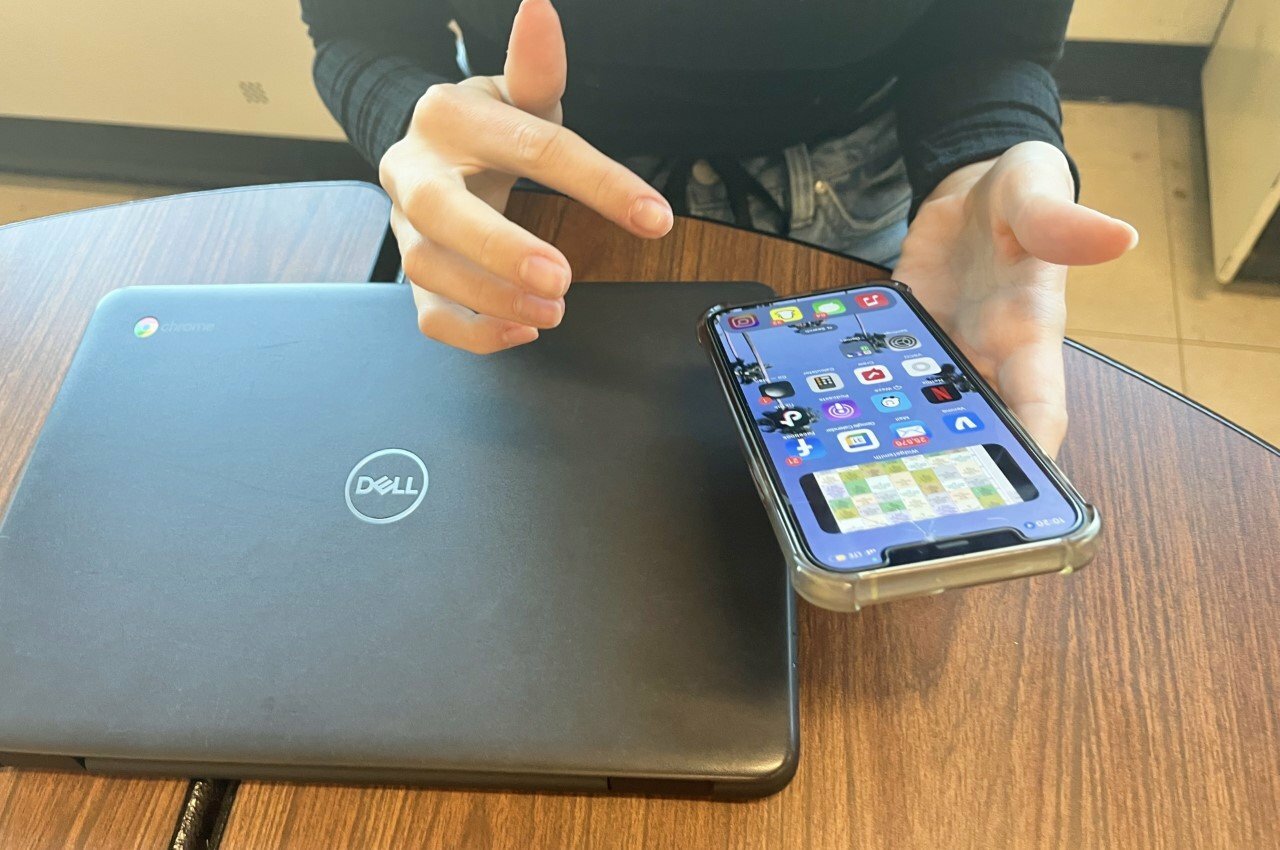Mt. Hope codifies cell phone ban in school handbook update
“The use of cell phones in educational environments (classroom or other locations where teaching and learning is taking place) is strictly prohibited,” the handbook language reads.
This item is available in full to subscribers.
Please log in to continue |
Register to post eventsIf you'd like to post an event to our calendar, you can create a free account by clicking here. Note that free accounts do not have access to our subscriber-only content. |
Day pass subscribers
Are you a day pass subscriber who needs to log in? Click here to continue.
Mt. Hope codifies cell phone ban in school handbook update
The Bristol Warren Regional School Committee voted on Monday night in favor of proposed changes to the Mt. Hope High School student handbook for the upcoming 2024-25 school year, which now includes a clear declaration regarding the prohibition of cell phone use while in a classroom setting.
“The use of cell phones in educational environments (classroom or other locations where teaching and learning is taking place) is strictly prohibited,” the handbook language reads. “All students are expected to follow the cell phone expectation as outlined below…
• All students will power down phones
• All students will place phones in designated “cell phone receptacle” in each classroom
• Cell phones will remain in their designated, classroom location for the duration of class
• Students may not, at any time, photograph, record, or film others without their consent
• Earbuds or other headphone devices are prohibited in classrooms
Mt. Hope Principal Michelle King explained to the school committee that the changes to the handbook follows a continuing effort to codify and make more rigorous the expectations regarding student and staff use of cell phones during class time.
The change in handbook policy comes in the wake of policy discussions at the district level that occurred at the school committee back in January of this year, where the committee and school administration looked into acquiring a service called Yondr — where phones are placed into magnetically sealed pouches and rendered inaccessible until they are unlocked at the end of the school day.
It was revealed at the meeting that the district did not receive the grant they had submitted to fund that initiative, although Superintendent Ana Riley said they were still looking into possible funding sources for that effort.
For now, the district is poised to move forward with an approach where classroom teachers collect cell phones at the beginning of a class and then return them to students after class is dismissed — King mentioned that some teachers already use collection methods such as placing a hanging shoe organizer on a classroom door, where students can place their phones.
“We’re looking into means to have something [like that solution] for every single classroom, so there is no excuse or reason for not following through,” said King.
The policy states that students will retain access to their phones during lunch periods and in passing time between classes, but not during bathroom breaks from class.
Three-tiered discipline structure
The cell phone policy includes a three-tiered punishment structure for infractions.
A first infraction results in the teacher confiscating the phone, which they return to the student at the end of the class period. A second infraction results in confiscation and the phone being handed to the administration, where the student can only pick up the phone at the end of the school day, and a parent will be notified of the infraction. A third infraction will result in the phone being confiscated, being turned over to administration, and requiring a parent or guardian to pick up the phone from the school office.
Committee treasurer Jessica Almeida asked how the policy would be enforced. Superintendent Riley said that she believed students and staff would eventually see the benefit of not having the temptation of their phones during the school day.
“We did survey the staff and 75% of the staff supported this,” Riley said. “I do think that once we continue to share and have those days when there are no cell phone use, that people will all start to see the benefits. Both students and staff will see the benefit of not being wed to that device all day. I think we just have to get there.”
School committee chairperson Nicky Piper said that hopefully students would see the measure as a compromise one step below being required to put their phones in a sealed pouch every day.
“I also worry about the burden this is putting on our teachers for enforcement, but I also think there should be some accountability for the kids,” Piper said. “They were very alarmed at the thought of the pouches. Maybe pointing out that this is a compromise, that if they can follow with this code of conduct that maybe they can prove they can have responsible cell phone usage.”






